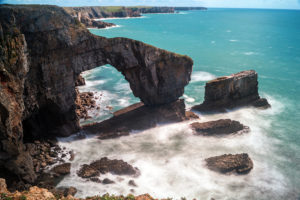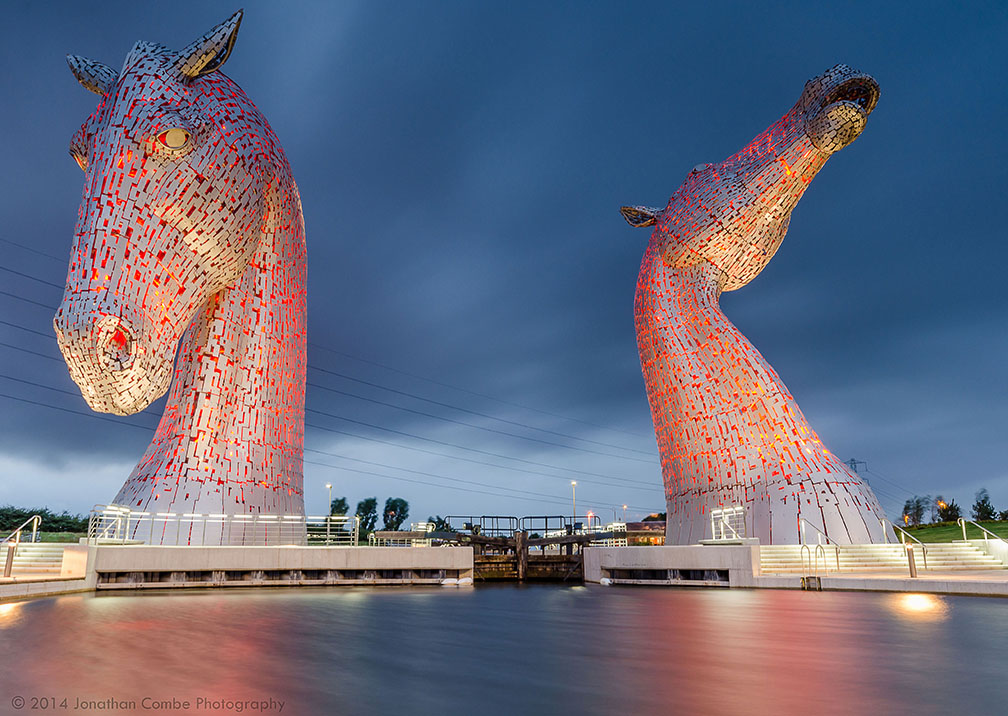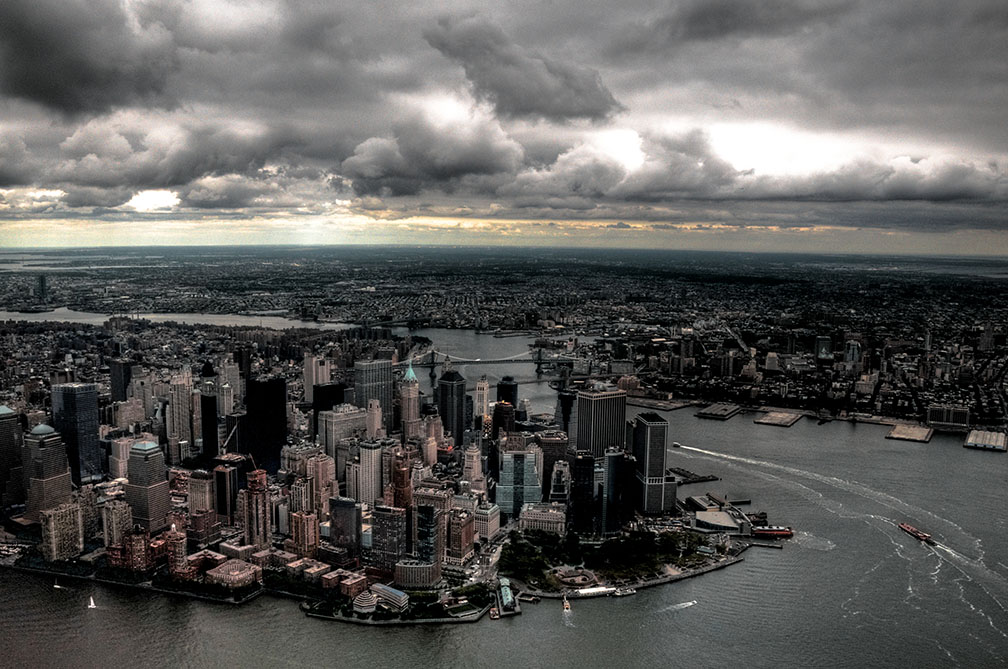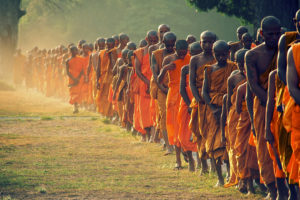[dropcap]N[/dropcap]ow that the orgy of insufferable hipsterism known as Coachella is finally behind us, it’s officially music-festival season, when hundreds of concerts will take over entire cities, towns, parks, and fields across the United States. As everyone knows, events like Lollapalooza, Lockn’, and Bonnaroo follow in the grand tradition of the Woodstock Music & Art Fair held in August of 1969. That’s when a dairy farmer from Bethel, New York, named Max Yasgur opened his pastures to half a million unwashed flower children and hippie-wannabes.
“The Piano Drop definitely started Woodstock. In our own minds, of course.”
Actually, Woodstock was not the first outdoor festival to feature multiple bands over several days performing on a stage set up out in the middle of a farmer’s field. In fact, the organizers of Woodstock may well have taken their cue from the Sky River Rock Festival and Lighter Than Air Fair, held over Labor Day weekend of 1968, a full year earlier. At Sky (short for Skykomish) River, some 20,000 people descended on Betty Nelson’s organic raspberry farm in Sultan, Washington, to turn on, frolic naked in the mud, and tune into the music of 20 or so bands and performers, playing everything from folk and blues to jazz and rock. A young Richard Pryor was there (his debut comedy album would be released that November), as was the Grateful Dead, whose unscheduled appearance on the last day of the festival was as big a surprise to the concert’s exhausted and bewildered promoters as it was to the appreciative crowd.Whether Woodstock would have happened without Sky River is, of course, anybody’s guess, but Sky River absolutely would not have happened without an even less-heralded event called the Piano Drop, a one-day Dadaist spectacle held on April 28, 1968, in a tiny town (its population was just 455) northeast of Seattle called Duvall.
As the name of the event suggests, the Piano Drop featured a dropped piano (which organizers hoped would land on a specially prepared wood pile with a resounding crash), plus music byCountry Joe and the Fish. Depending on whom you talk to, at least 3,000 and as many as 5,000 people showed up for this experiment in sonic mayhem.
[quote align=»left» cite=»Tim Cook»]The Piano Drop definitely started Woodstock. In our own minds, of course.[/quote] The “official” history of the Piano Drop, as chronicled by the late writer, artist, and political activist Walt Crowley in “Rites of Passage: A Memoir of the Sixties in Seattle,” credits artists and musicians Gary Eagle and Larry Van Over (aka Jug, for the jug band he played in) for the idea. Everyone agrees on that, but exactly what inspired them is tougher to pin down. According to Crowley, Van Over and Eagle were listening to a radio show one night when the station aired a recording of 200 “revelers” dismantling/destroying a piano with sledge hammers. Apparently, wrote Crowley, the two friends were disappointed with the “aural experience” and thought they could do better.
“It was, like, a happening, you know?” says Joe McDonald today. “We didn’t do a lot of artsy happening things,” he adds, “but I was personally open to all sorts of crazy kinds of ideas, so I wouldn’t have objected to that.”

Amazing beach for relaxing
That may be true, but today, almost half a century later, Gary Eagle says it was only part of the story. “Well,” he begins, “it was a few things. We were hauling a piano through the Central District of Seattle one time and it fell off the truck. We thought that it sounded kind of cool when it hit the pavement. So we were playing the piano one night, trying to figure out how to replicate all the noises. We were pretty loaded, but we decided that if we dropped it, it would make this huge boom, and that would really be cool. So we went around Seattle trying to find a hall that would let us drop a piano in it. But they wouldn’t do it, especially when it was a bunch of crazy hippies asking. So we decided, hell, Larry has this piece of property out in Duvall, we’ll just do it there.”
Haries’ enthusiasm for cooking is infectious, his altruism unwavering. His sweaters are loud, colorful woolen garments that match in eccentricity the animal-themed hats he often wears to lighten the mood. His soup-of-the-day is served in styrofoam tumblers and includes local vegetables and spices he brought from his home in Kuala Lampur. Bringing a smile, along with some hot tea and soup, has become his simple daily mission.
1. Good places for weekend
“I need more cumin!” he shouts out above the chaos as traumatized refugees arrive on the beach. Volunteers from around the world frantically tend to dazed families, wrapping them in emergency blankets. In Arabic, mothers scream out for their children — the first to be given and grabbed off the boats — terrified they will disappear in the confusion. Everyone is cold, their clothes saturated and stuck against shivering skin.

Amazing Huge Building looks like a horse
Since then, he’s seen the horrors of the Aegean first hand, and it’s saddening he admits. But being a witness to the Greek tragedy that plays out daily on Lesbos spurs him on. The short, yet deadly passage across the Aegean Sea claims the lives of refugees regularly, seeing a recent spike since winter weather is setting in. Twenty-nine perished last Wednesday when multiple boats capsized off the island with dozens still missing and bodies washing ashore daily.
“We’re not talking about numbers, we’re not talking about benefits, we’re talking about another human being, that looks like you, that has the same heart, the same red blood, trying to make it to safety,” he says.
- Van Over and Eagle were listening to a radio
- History of the Piano Drop
- exactly what inspired them is tougher
- Gary Eagle says it was only part
On slower days, Haries ferries home-made brownies through the cafes that stay open late to cater to the constant stream of volunteers maintaining a presence in the small fishing village at the crux of Europe’s refugee crisis. Lesbos island alone has received well more than 200,000 refugees this year, passing through after fleeing war and poverty in the Middle East and beyond.
“You know, there is something about food that is comforting,” Haries said. “Food is always hope and I just want to give hope to people. That’s the most important thing in life.”



















ahmad says:
Actually, Woodstock was not the first outdoor festival to feature multiple bands over several days performing on a stage set up out in the middle of a farmer’s field. In fact, the organizers of Woodstock may well have taken their cue from the Sky River Rock Festival and Lighter Than Air Fair
ahmad says:
That may be true, but today, almost half a century later, Gary Eagle says it was only part of the story. “Well,” he begins, “it was a few things. We were hauling a piano through the Central District of Seattle one time and it fell off the truck.
ahmad says:
Now that the orgy of insufferable hipsterism known as Coachella is finally behind us, it’s officially music-festival season, when hundreds of concerts will take over entire cities, towns, parks, and fields across the United States. As everyone knows, events like Lollapalooza
ahmad says:
The impetus for this particular crazy idea is a matter of low-key debate among Piano Drop historians and those who were there. The “official” history of the Piano Drop, as chronicled by the late writer, artist, and political activist Walt Crowley in “Rites of Passage: A Memoir of the Sixties in Seattle.
ahmad says:
At the time, Eagle was working for an alternative newspaper called the “Helix,” whose editorial DNA revolved around civil rights, ending the war inVietnam, sex, drugs, and rock ’n’ roll. In his capacity as the paper’s editor and publisher, Paul Dorpat actually found himself involved in that last arena quite a bit.